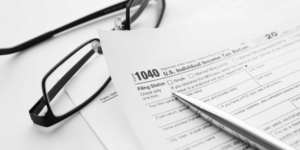It’s a familiar scene every spring: the firehouse banter shifts from last night’s 3-alarm blaze to that other annual ordeal – tax season. Tax season just hits different when you’re pulling 24-hour shifts and juggling overtime. Between FLSA calculations, specialty pay, and pension contributions, your tax situation isn’t exactly straightforward. But fear not, because just as we gear up for a call with preparation and teamwork, we can tackle tax time the same way. Let’s break down some savvy tax hacks tailored for firefighters, so you keep more of that hard-earned paycheck (and maybe upgrade the coffee in the chow hall!)..
Tracking Shift-Based Deductions: Every Mile & Meal Counts
You live life by shifts and alarms, so your expenses don’t always look like a 9-to-5 worker’s. Keeping track of those shift-based deductions can put real money back in your pocket. Think mileage when you drive to training or between stations, union dues you pay out-of-pocket, or gear and uniforms you buy on your own dime. Even that new pair of station boots might count. The key is to track everything – every mile, every receipt, every union fee.
Pro tip: Create a simple system – for example, snap a photo of receipts on your phone and toss them in a “Taxes” album. Receipts have a habit of disappearing like smoke, and digital backups will make you a hero to your future self come tax time.
Now, here’s the rub: due to recent tax law changes, many of these job-related expenses aren’t deductible on your federal return. Uncle Sam doesn’t currently allow unreimbursed work expenses as a write-off. But don’t toss those records! Some states still give firefighters a break on things like union dues, equipment, and even mandatory station meals.
For example, California lets you deduct certain job expenses if they’re over 2% of your income – and other states offer credits or deductions, especially for volunteer firefighters. The rules can vary more than chili recipes, so be sure to check your state’s playbook (or talk to a tax professional) to see what counts.
FIREFIGHTER TAX DEDUCTIONS YOU MIGHT BE MISSING
These write-offs could save you thousands. Track them now, thank yourself later.
Mileage & Travel
- Off-site training miles: Track every trip to academies or workshops
- Conference travel: Document mileage, parking, and tolls
- Covering shifts at different stations: Log those extra miles
- Volunteer responding: Miles driving to scenes/calls (volunteers only)
Uniforms & Gear
- Department-required clothing: Items not reimbursed by department
- Specialized equipment: Boots, flashlights, extra gloves
- Maintenance costs: Uniform cleaning, equipment repair
- Personal protective items: Non-reimbursed safety gear
Training & Certification
- Course fees: EMT, paramedic, hazmat training
- Certification renewals: Annual or periodic license fees
- Required books/materials: Textbooks, study guides
- Professional dues: Union fees, professional memberships
Station Meals
- Mandatory meal funds: Required contributions to firehouse meals
- Documented food sharing: Keep records of your regular contributions
- Station equipment: Kitchenware purchased for station use
The bottom line? Stay organized and document everything. Even if current federal rules mean you take the standard deduction, you’ll be prepared if things change. And at minimum, you’ll have a clear picture of what your job truly costs you – ammo for future planning or negotiating stipends. As firefighters, we know the value of being prepared and having the right info on hand. Treat your deductible expenses like a second nature, the same way you’d check your equipment before a shift.
FLSA Overtime and Tax Withholding
Ah, overtime – that sweet, time-and-a-half (or more) boost on your paycheck that’s usually followed by, “Wait, why is Uncle Sam taking so much?!” Many firefighters rack up overtime due to our unique schedules and the Fair Labor Standards Act (FLSA) rules. Under FLSA, you might earn overtime on an extended cycle (for example, over 212 hours in 28 days instead of the typical 40-hour week). This often means **big lump-sum OT checks**, which can throw your tax withholding out of whack. Let’s extinguish the confusion:
Overtime pay is taxed like regular income – there’s no special “overtime tax” despite what the firehouse rumors say. The reason your OT check withholds a lot is that payroll software sees a fat paycheck and temporarily withholds at a higher rate (assuming you’d make that every pay period). It might feel like getting hosed, but if they take too much, you’ll get it back at tax time. The real issue is making sure you’re not under-withheld when you work tons of OT.
Here are some hacks to handle overtime taxation:
Adjust Your Withholding
If you consistently log big overtime hours, consider adjusting your W-4 at work. You can have extra money withheld from each paycheck or tweak your allowances so you don’t get a nasty surprise in April. The new W-4 form even has a section for multiple jobs or extra income – use it to tell Uncle Sam the right info.
Use an Online Calculator
The IRS provides a Tax Withholding Estimator online. Plug in your salary plus an estimate of overtime and other income. It’ll suggest how to fill out your W-4. It’s like a thermal camera for your taxes – shows you heat spots before they become a problem.
Avoid “Bracket Creep” Surprises
Overtime can push part of your income into a higher tax bracket. For example, if most of your regular pay is taxed at 22%, some of your OT might land in the 24% range. That’s normal – we have a progressive tax system. The key is to anticipate it. If you’re near a bracket threshold, maybe set aside a bit extra from that OT for taxes or use it to fund a retirement account (more on that soon!).
Don’t Bank on Refunds (or Huge Bills)
Some folks purposely have too much tax withheld so they get a big refund (“forced savings”, they say). Others end up owing a lot because they didn’t withhold enough on overtime. Aim for the sweet spot: close to break-even. That way, you’re not giving the IRS an interest-free loan, and you’re not scrambling to pay a bill. Adjust as needed each year if your OT changes.
In short, treat your overtime pay with the same caution as entering a burning building – know what you’re dealing with. A little planning with your withholdings can prevent your overtime from turning into a four-alarm tax fire. And if you ever feel unsure, flag down a financial advisor or tax pro (preferably one who knows firefighter life). They can help make sure your withholding is dialed in just right, so you can enjoy those OT earnings rather than fear the tax man’s axe.
Second Job Income Management: Balancing Side Gigs & Soot
Firefighters are known for their hustle. With 24-on/48-off schedules or similar, many have a side gig when not at the station. Whether you’re building decks, running a small business, or working per diem EMS shifts on your days off, that second income can ignite some tax questions. How do these extra dollars affect your tax picture? And more importantly, how can you use that income to bolster your financial future instead of feeling burned at tax time?
First off, all income is taxable (unless it’s from a truly hobby-level endeavor or below certain thresholds). If your side gig issues you a W-2, it’s straightforward – but watch out: that second employer might be withholding as if that’s your only job, which could be too little. If you’re self-employed (say you have an LLC for consulting, landscaping, or teaching fitness classes at the gym), you’re responsible for your own taxes, including self-employment tax (the firefighter stays fit and also pays the 15.3% self-employment tax, ouch!). Here are some key tips for managing your side-job income:
Quarterly Taxes for 1099/Self-Employment
If you get 1099 income or cash from a business, the IRS expects you to pay taxes throughout the year (not just in April). Set aside a chunk of each payment (generally 20-30% depending on your tax bracket and state taxes) in a savings account. Mark your calendar for quarterly estimated tax due dates. It’s not fun writing those checks, but it’s better than a huge bill with penalties later. Pro tip: If you hate making separate payments, you can increase withholding at your fire department job to cover the side gig’s taxes – it all comes out even in the end.
Deductible Expenses & Home Office
Got expenses from the side gig? Keep receipts and records, just like we discussed for your main job. If you’re an independent contractor, you may be able to deduct costs like tools, gear, a home office (maybe that desk where you plan out contracting jobs or do online training), vehicle use, etc. These write-offs from your side hustle can offset the extra income and lower your tax hit. Just be sure they’re legit business expenses – the IRS knows the difference between a chainsaw for your lawn care business vs. a new TV “for the office”.
Leverage a Solo 401(k) or SEP IRA
Here’s a big hack: Use that side gig to fatten your retirement savings and slash your taxes at the same time. If you have self-employment income, you can often set up a Solo 401(k) or a SEP IRA. A Solo 401(k) (for solo business owners with no employees) lets you contribute in two ways – as the employee (elective deferral) and the employer. That means potentially tens of thousands of dollars sheltered per year. For example, if your firefighter salary already maxes out your 457 or 401(k) at work, you could still put aside money from your side business into a Solo 401(k) because it’s a separate plan. More retirement $$$, less current taxable income. Win-win!
In Conclusion
No one wants to be eating beans out of a can in retirement because they didn’t plan right. The great news is that firefighters have some excellent tools at their disposal: pensions, deferred comp, special catch-up contributions, DROP programs, etc. By using a mix of tax-deferred and tax-free saving vehicles now, you set yourself up for a flexible and lower-tax retirement income later. Future You will high-five the present you for having the foresight.
At the end of the day, prepping for tax season as a firefighter might never be as fun as sliding down the pole for a midnight call, but it can be straightforward and rewarding. With a little organization, the right strategies, and maybe a friendly nudge from someone who knows the ropes, you can turn tax season into an opportunity – to save money, invest in yourself, and plan for the long haul. If reading these hacks has your gears turning, but you’re not sure where to start, we’ve got your back. Just as you’re there for the community, Protection Red is here for you.
Ready to take the next step? Schedule a meeting with our team at Protection Red for a personal financial check-up tailored to firefighters. Just click the button below!





